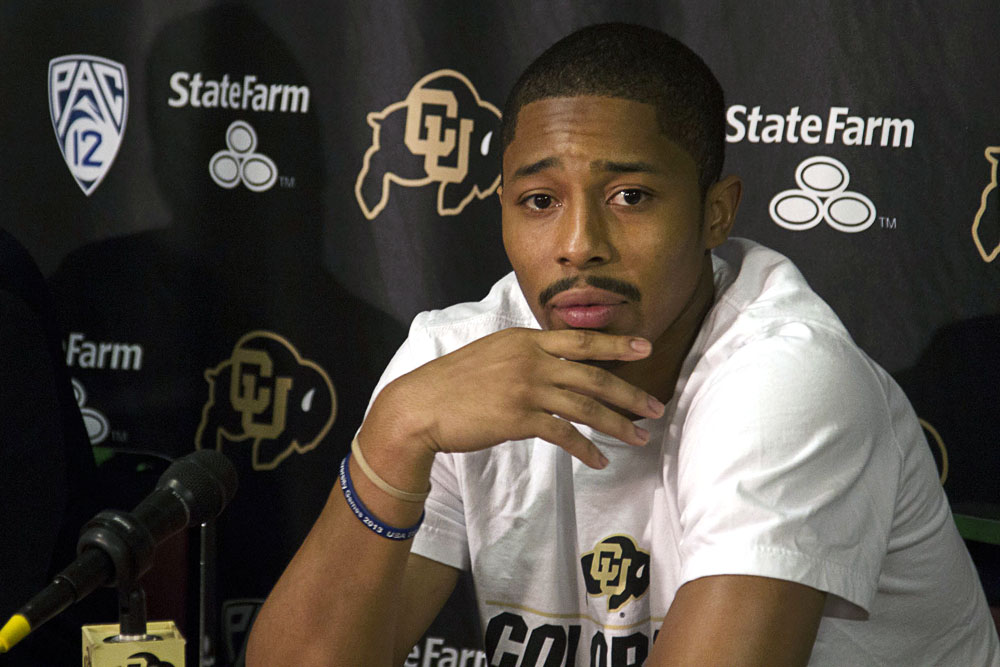
Colorado junior guard Spencer Dinwiddie declared his intent to enter the NBA Draft Thursday, April 24 at a press conference at the Coors Events Center in Boulder, Colo. (Matt Sisneros/CU Indepedent)
University of Colorado point guard Spencer Dinwiddie entered the media room in the bowels of the Coors Event Center quietly, but his entrance silenced everyone in the room. The junior squeezed to the front with a slight limp, a reminder of the torn ACL he suffered January 12. He sat down in front of a microphone. Fifty feet to his left was the basketball court on which he had played 40 games and won 35. His parents and his girlfriend, CU women’s basketball player Arielle Roberson, stood in the back.
Dinwiddie didn’t say anything until he was joined to his right by Tad Boyle, his coach of three years. Dinwiddie thanked the city he said had become his second home. He met his best friend, Jeremy Adams, here in Boulder. He thanked his coaches by name. Then Spencer Dinwiddie answered the question that had hovered since he tore his ACL:
“I’d like to announce that I’m going to declare for the 2014 NBA Draft.”
With those widely-expected words, Spencer Dinwiddie was gone. He leaves a Colorado team that fell apart without him. The Buffs, ranked No. 15 in the country when he went down, were 9-9 afterward. Arizona blew them out three times. They lost to Pittsburgh by 29 in the first round of the NCAA Tournament.
Dinwiddie made his decision earlier this week after seeing a specialist in Houston. He said his recovery from the ACL injury will take only seven months instead of the usual eight to ten. Dinwiddie was projected as a late first-round pick before the injury. He wanted to go if he were still guaranteed being taken in the first round; it’s a more questionable prospect now, but Dinwiddie said that he got “a lot of intrigue from the league.”
Dinwiddie’s fondest memory from CU will be his best friends. People as blunt as he is don’t always make many friends, but the friendships he forged here will last a lifetime, he said.
He leaves Colorado after ushering in the most successful stretch in program history. In his freshman year, the Buffs won the Pac-12 conference championship and advanced to the NCAA Tournament for the first time in 15 years. As a sophomore, he became a versatile scorer, craft ball-handler and tight on-ball defender. In a game at Oregon State, he scored 24 points without missing a shot or a free throw.
“Spencer believed in us before we won a game,” Boyle said.
Dinwiddie was arguably one of the few college basketball players whose ability matched his confidence. It is that confidence, in overcoming the doubt surrounding his knee, that is taking him to the league.
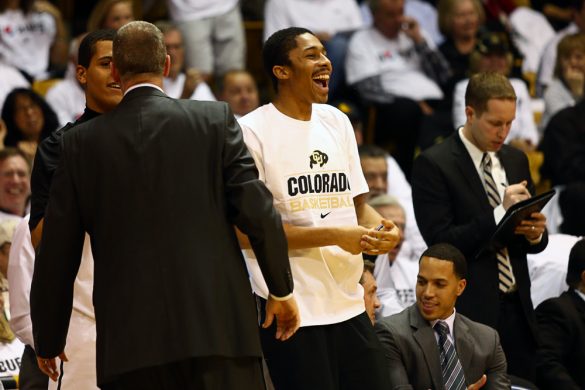
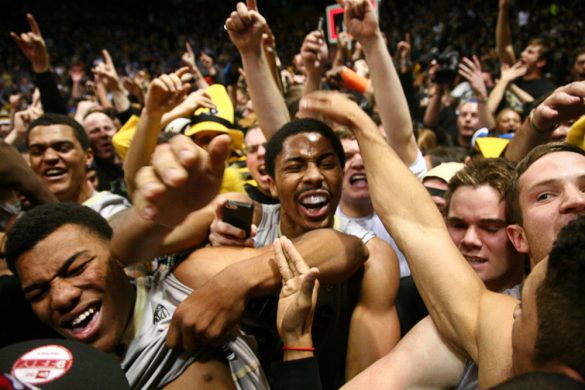
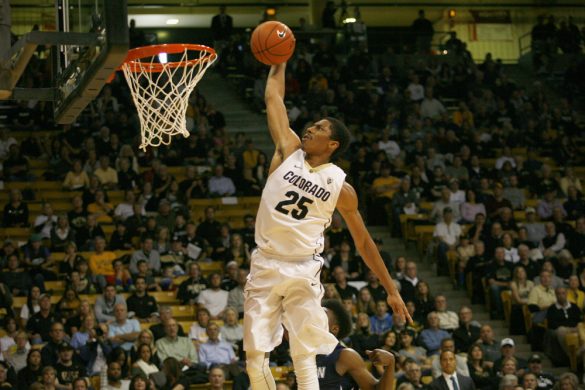
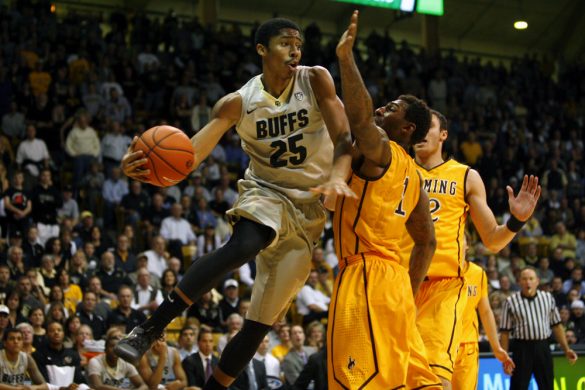
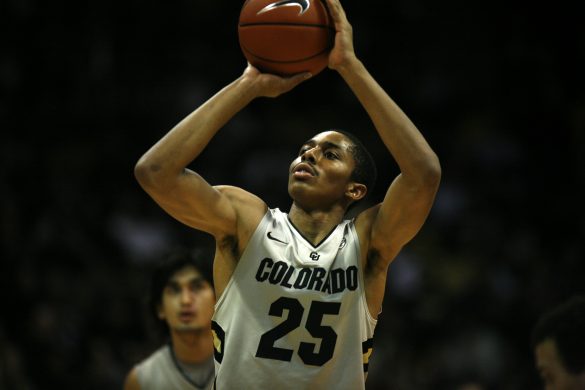
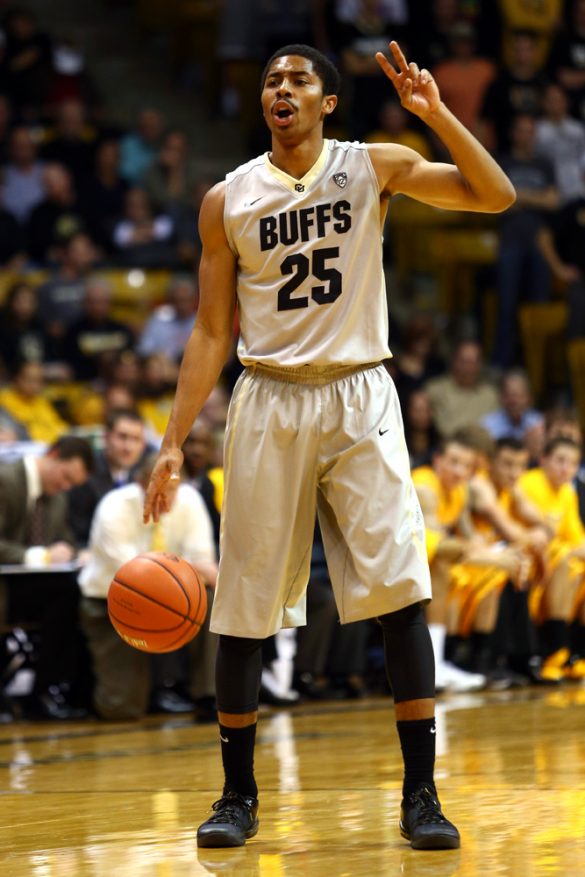
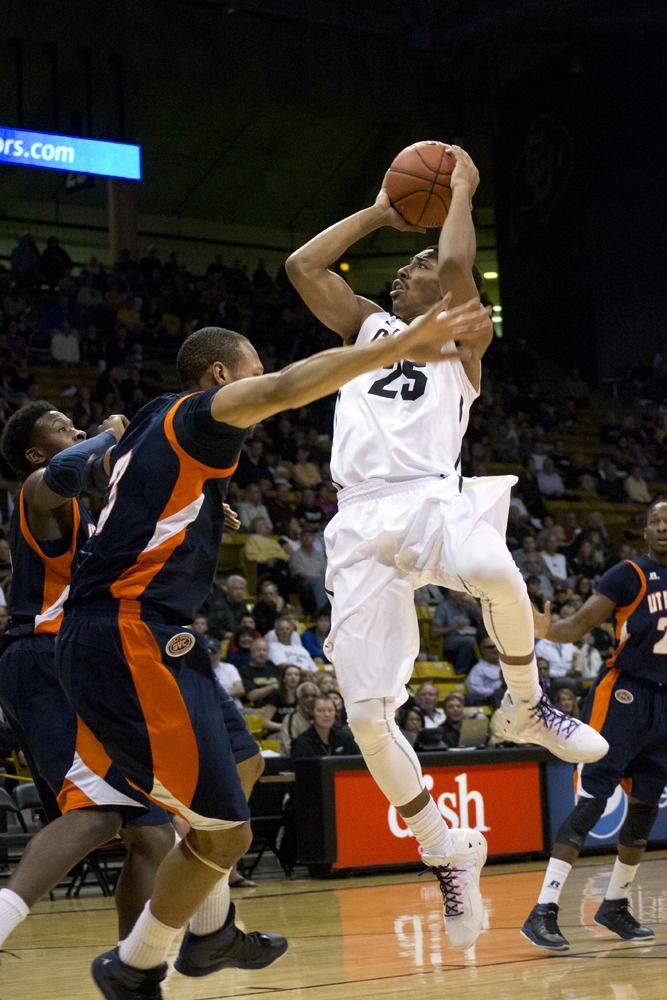
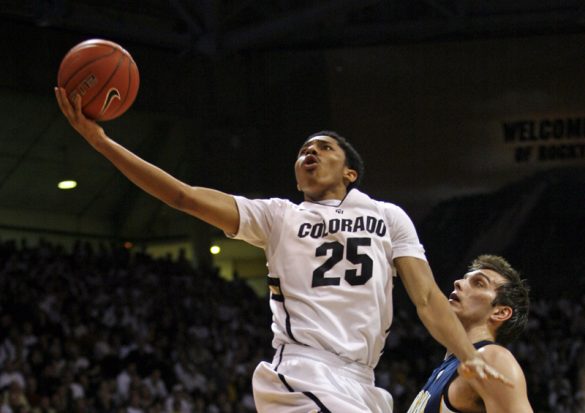
“I got first-round talent,” he said. “You’re gonna get Spencer Dinwiddie, not Spencer Dinwiddie with a bad knee. There aren’t too many many players in this draft — I don’t care if it’s the best draft in recent history — that are better than me.”
Russell Payne, the specialist in Houston, compared his recovery to NFL running back Adrian Peterson.
“He said, ‘If Peterson’s Secretariat, you’re Seabiscuit,'” Dinwiddie said.
He’s off, testing the waters of the NBA. He is risking a lot of money by entering a deep draft after a devastating injury. He won’t get a guaranteed contract if he slips past the first round, and point guards don’t have a good recent track record of recovering from ACL tears.
But any team that watches tape will see the talent and the leadership that are worth taking a chance on. They’ll see the player Colorado is losing. If Dinwiddie had returned, he could have been unstoppable on pick-and-rolls with junior forward Josh Scott. The Buffs will return all starters other than Dinwiddie, but coach Tad Boyle struggled to find a consistent guard lineup after Dinwiddie went down, and will continue to.
Boyle alternated sophomore Xavier Talton and freshman Jaron Hopkins opposite junior Askia Booker, and Booker had trouble adjusting to a less ball-dominant role. He led the team in assists (116), but played terribly in losses to Arizona and Pittsburgh.
Boyle now has do decide if Hopkins or incoming freshman Dom Collier will start in Dinwiddie’s place. Hopkins is raw and shot 38.2% from the field this season, but he is a freakish athlete and has good defensive potential. (He also threw down this nasty dunk last year.) Collier is small (6 feet 2 inches, 166 pounds), but he was a dominant scorer at Denver East High School and is more of a traditional point guard than Hopkins, Booker or Talton.
Despite the uncertainty, both Boyle and Dinwiddie are optimistic about Colorado’s future. Dinwiddie called Scott the best big man in the country. Boyle recruited Collier with Dinwiddie’s departure in mind, and the Buffs are already used to playing without Dinwiddie.
Before he left, Dinwiddie suggested reforms to the NCAA’s rules that would have made his decision easier. He said players should be able to have direct contact with NBA teams before they declare for the draft. The NCAA forbids this under its amateurism rules. Dinwiddie could have removed any doubt about his draft status with a few interviews and physicals.
Still, he decided it was worth the risk. On June 26, he’ll know how much his knee really concerns NBA teams. Colorado will move on, but the Buffs will miss the on-and-off court leader who Dinwiddie was. Maybe Collier will step up. Maybe Hopkins or Booker will. But for now, campus needs a new mayor.
Contact CU Independent Staff Writer Tommy Wood at thomas.c.wood@colorado.edu.
